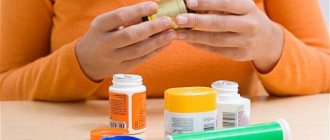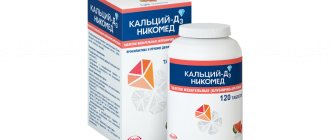In case of sore throat, tonsillitis, stomatitis and other pathologies, inflammatory processes develop and damage the mucous membrane of the throat and neighboring areas. One of the effective and affordable drugs for treatment is Grammidin. It is used externally in the form of lozenges and spray.
Pharmacodynamics and pharmacokinetics
The active ingredient, gramicidin C, is an antibiotic of the tyrothricine group , which is active against most Gram+ and Gram- microorganisms that cause infectious diseases in the oral cavity and pharynx. By increasing the permeability of microbial cell membranes for the penetration of inorganic cations, osmotic instability of the cells is achieved. In addition, during the resorption process, salivation increases, which promotes natural cleansing of inflammatory exudate and microorganisms, starting from the throat, oral cavity and ending with the tonsils.
Since gramicidin C is characterized by low systemic absorption, there are no data on pharmacokinetics.
How do alcoholic drinks affect the body?
The basis of any such drink is ethanol. The difference lies in its content. For example, there is 10 times more of it in vodka than in beer. Drinking alcohol in large quantities has a negative effect on the body. No more than a tenth of the volume of ingested ethanol is excreted in the urine and then, the remaining 90% is broken down and absorbed.
Ethanol harms cell membrane lipids. Their viscosity decreases, and the receptors become insufficiently sensitive to the necessary mediators. To prevent this effect, the stomach tries to neutralize ethanol. To do this, the mucous membrane produces much more mucus than in normal digestive mode. On the one hand, this slows down the absorption of the unwanted substance, on the other hand, it causes irritation of the mucous membrane and inhibits the absorption of nutrients and other drugs.
A complex of pathologies called alcoholic liver disease cannot be excluded. When ethanol is abused, cellular degeneration develops, interfering with the normal functioning of the organ.
Contraindications
Contraindications include groups of patients who are not recommended to take the drug:
- having hypersensitivity to the components of the tablets;
- pregnant and breastfeeding women, as well as children under 12 years of age.
Milk sugar - lactose is included in Grammidin tablets, which is why they should not be prescribed to people with galactose lactase enzyme deficiency or glucose-galactose malabsorption syndrome .
How do antibiotics affect the body?
It is not without reason that drugs in this group are taken only as prescribed by a doctor. The principle of their action is to destroy or suppress the growth of bacteria, all of them (both beneficial and harmful).
They attack:
• Cellular synthesis apparatus. This prevents bacteria from building protective peptide walls.
• DNA gyrase. This prevents the replication of genetic information and inhibits the proliferation of pathogenic microorganisms.
• Protein biosynthesis apparatus (ribosomes) - without it, bacteria die.
Modern pharmacology is trying to make antibiotics more selective. But their use leads to an imbalance of microflora. Beneficial bacteria, which form a kind of shield in the intestines, also suffer. Therefore, only a specialist can compare the effect of treatment with possible losses. Also, a number of antibacterial drugs have the property of hepatotoxicity. They damage liver cells, causing cholestasis (impaired bile flow) or necrosis (tissue death).
Grammidin's analogs
Matches by level 4 ATC code: Grammidin with anesthetic Neo
Grammidin for children
Grammidin with anesthetic
Grammidin Neo
Bioparox
Gramicidin S
Trachisan
The price of Grammidin analogues ranges from 200-270 rubles, among them are Valenta Pharmaceuticals tablets with different compositions of active ingredients:
- Grammidin Neo (the drug is supplemented with active ingredients - oxybuprocaine and cetylpyridinium chloride ) No. 18 - 210-230 rubles;
- Grammidin Neo with anesthetic (supplemented with the anesthetic lidocaine hydrochloride ) No. 18 – 240-270 rubles;
- Children's with raspberry flavor (with cetylpyridinium chloride ) No. 18 - 180-200 rub.
Can I drink alcohol while taking antibiotics?
We have found that alcohol and antibiotics have a hepatotoxic effect. It turns out that if you combine them, the attack on liver cells will intensify many times over. This is the first reason why you should not drink alcohol during antibacterial therapy. But there are others.
A small portion of beer or wine will not destroy the liver. However, it is sufficient to activate the protective reaction of the gastric mucosa. Medicines will not be properly absorbed under such conditions. When antibiotics interact even with weak alcohol, the effect of antibacterial therapy will be minimal, if not zero. Therefore, it is better not to allow such a combination.
Grammidin price, where to buy
The cost of Grammidin tablets ranges from 270 rubles. The price of Grammidin starts from 180 rubles - for children and ends with Neo with Anesthetic (pain reliever) - 280 rubles. The best place to buy the drug is in Moscow pharmacies and other pharmaceutical companies working directly with ValentaPharm.
You can find out how much an analogue of the drug costs and other information on the manufacturer’s official website.
- Online pharmacies in RussiaRussia
- Online pharmacies in KazakhstanKazakhstan
ZdravCity
- Grammidin spray dosage.
for places approx. 0.06 mg+0.1 mg/dose vial. 112 doses Delpharm Bladel B.V./JSC Valenta Pharm RUB 333 order - Grammidin with anesthetic spray for places. approx. fl. 112 doses Delpharm Bladel B.V./JSC Valenta Pharm
RUR 379 order
- Grammidin NEO with anesthetic tablets for rassas. 3mg+0.2mg+1mg 18 pcs. JSC Valenta Pharmaceuticals
RUB 359 order
- Grammidin NEO tablets for rassas. 3mg+1mg 18 pcs. JSC Valenta Pharmaceuticals
RUB 296 order
- Grammidin children's tablets for rassas. 1.5mg+1mg 18 pcs. JSC Valenta Pharmaceuticals
RUB 317 order
Pharmacy Dialogue
- Grammidin spray 0.06 mg+0.1 mg/dose 112 doses Valenta Pharmaceuticals OJSC
360 rub. order
- Grammidin NEO with anesthetic lozenges No. 18 Valenta Pharmaceuticals OJSC
RUB 354 order
- Grammidin NEO lozenges No. 18 Valenta Pharmaceuticals OJSC
RUB 299 order
- Grammidin with anesthetic spray 112 doses Famar Netherlands B.V./Valenta Pharm JSC
RUR 387 order
- Grammidin spray for children 0.03 mg+0.1 mg/dose 112 dosesValenta Pharmaceuticals
RUB 393 order
show more
Which antibiotics are best not to combine with alcohol?
Antibacterial drugs form a fairly large pharmacological group. The drugs included in it have varying degrees of activity. Therefore, the use of some together with alcohol is undesirable, while others are not prohibited.
The first include antibiotics that have a high hepatotoxic effect:
• amoxicillin;
• flucloxacillin;
• erythromycin;
• sulfamethoxazole;
• gatifloxacin.
There are different points of view on the interaction of ethanol with tetracyclines. Some believe that with this combination the medicine is neutralized, others believe that it enhances the negative effect on the liver.
Some antibacterial drugs should not be taken with alcohol due to possible side effects. This is especially true for metronidazole.
How to avoid unwanted consequences?
The simplest solution is not to mix the substances. The course of antibacterial therapy does not last long, so you can be patient and not touch alcoholic beverages. However, a bacterial infection can strike at the most unexpected moment, for example, on the eve of a wedding or anniversary. In such a situation it is important:
• Consult your doctor about the compatibility of the prescribed drug with alcohol.
• Even in the absence of contraindications, do not abuse it - limit yourself to 1-2 glasses of a weak drink.
• If there are restrictions, do not violate them.
• Wait between the last dose of the medicine and drinking alcohol for at least two days (preferably three).
There is no need to interrupt your course of antibiotics for an alcoholic party. This will negate all achieved results and you will have to start treatment again. It turns out that during the first course of therapy the microflora suffered in vain, and with the second course it will be exposed to an unnecessary threat.
Consequences of drinking alcohol with antibiotics
If a person does not abuse alcohol, he will not feel any effect on the liver from a single combination of an antibiotic and ethanol. However, reactions may follow from other systems:
• Digestive. Stomach pain is due to irritation of the mucous membrane, and excess mucus secretion can cause diarrhea.
• Nervous. Antibiotics themselves have a detrimental effect on neurons. When interacting with ethanol, which excites the nervous system, convulsions are possible.
• Cardiovascular. Fluoroquinolones increase the risk of impaired blood flow, which increases stress on the heart. And every additional portion of beer or wine (not to mention stronger drinks) multiplies this load.
Allergy sufferers are generally prohibited from mixing any medications with alcohol, as the body's reaction can be unpredictable. Even a doctor cannot always predict the outcome.
Why shouldn't you drink alcohol while taking antibiotics?
We found that the main reasons are the danger to the liver and the possibility of side effects. But patients often ask the question: does the intensity of the drug’s action change under the influence of ethanol?
Overall it is decreasing. While the body resists the absorption of alcohol components, it unconsciously protects itself from medications. The stronger the alcoholic drink, the less likely it is that the medicine will be completely absorbed.
If you combine ethanol with metronidazole, a synergistic effect occurs. However, it concerns not the effect of the drug itself, but its side effects:
• drowsiness;
• concentration disorders;
• heart rhythm disturbances;
• nausea;
• headache.
There are also questions about a possible overdose. There is no need to be afraid of it - there is no alcohol in antibacterial drugs. Such assumptions arise due to inattentive study of the composition of drugs.

